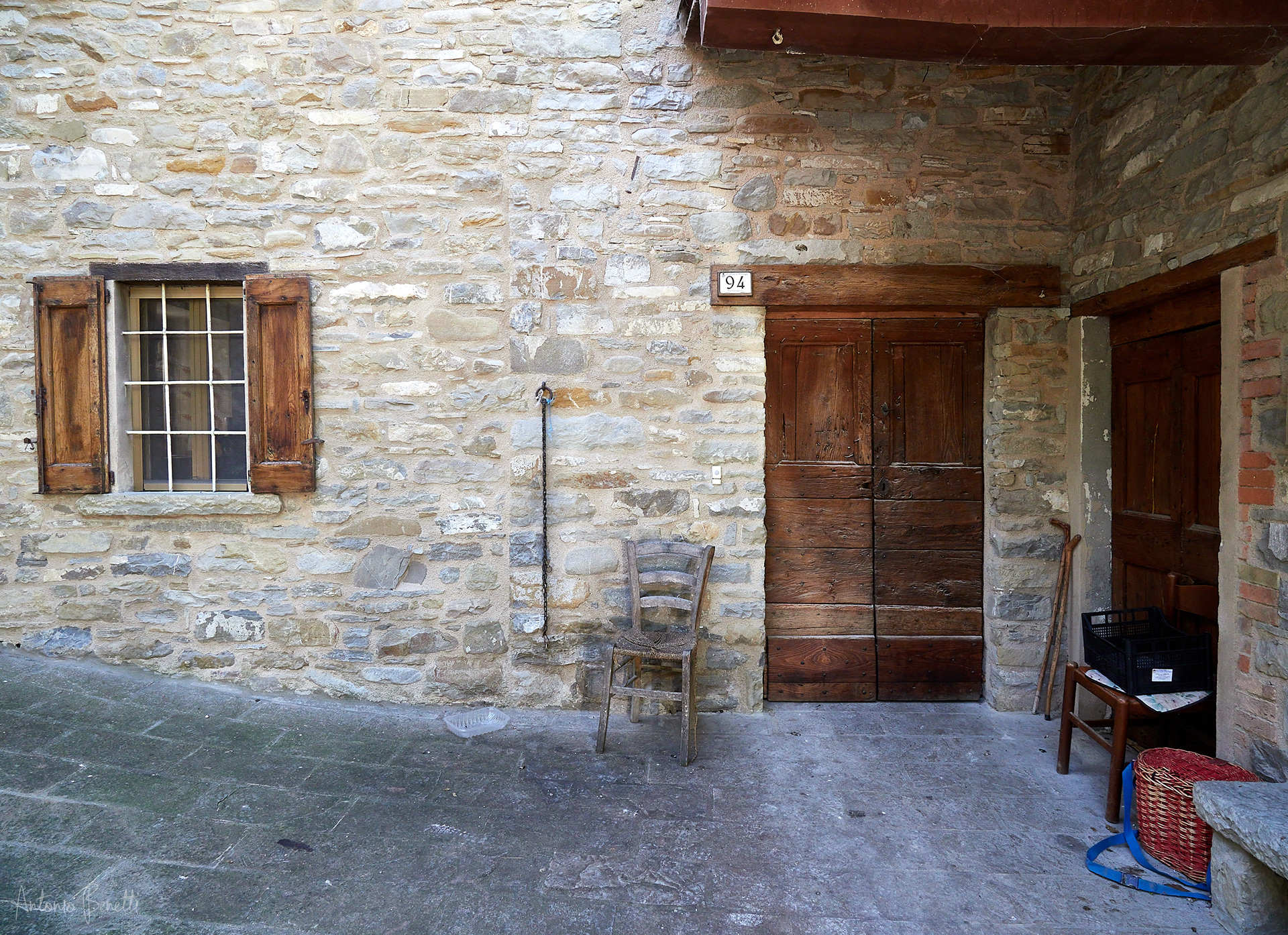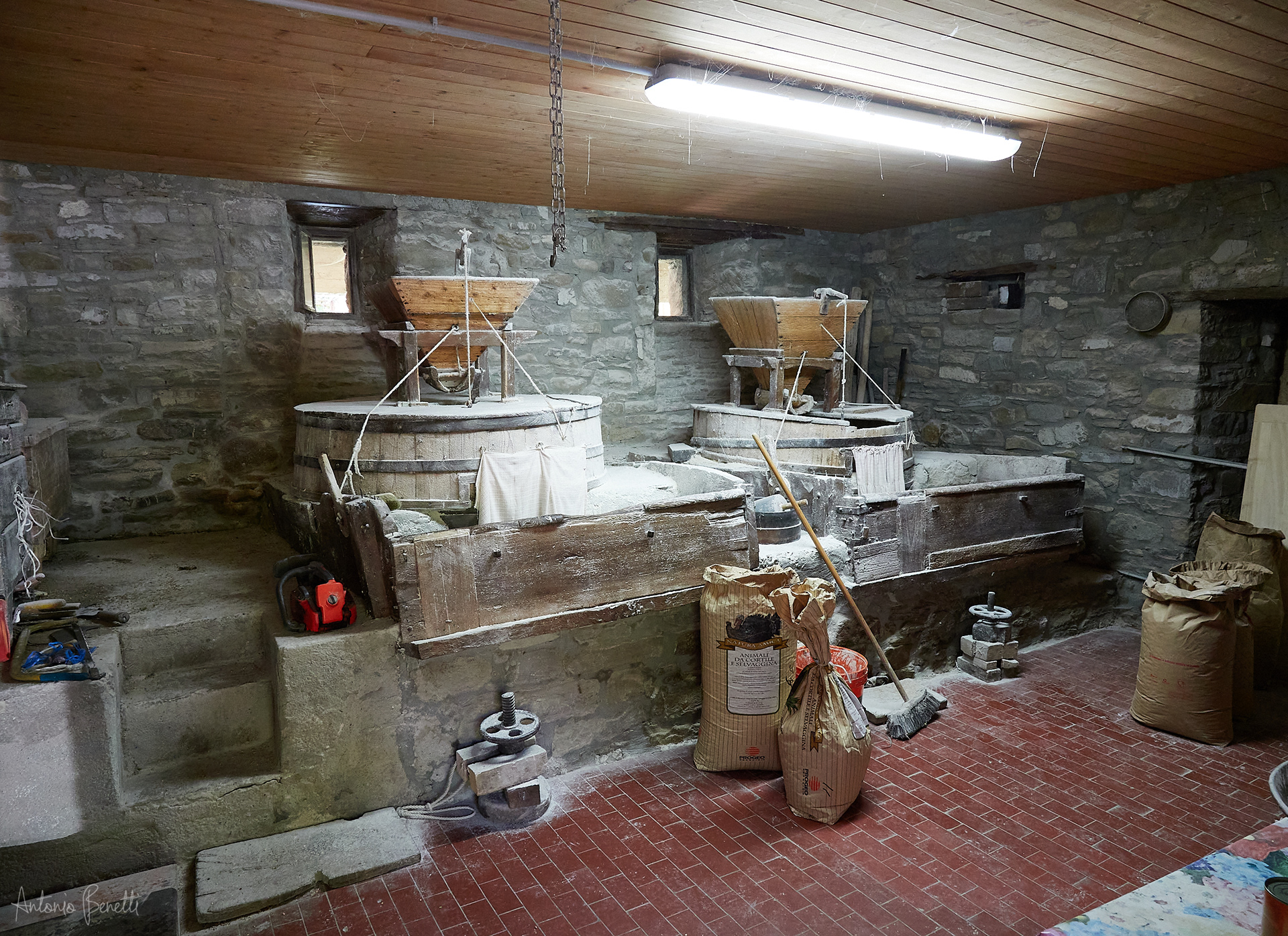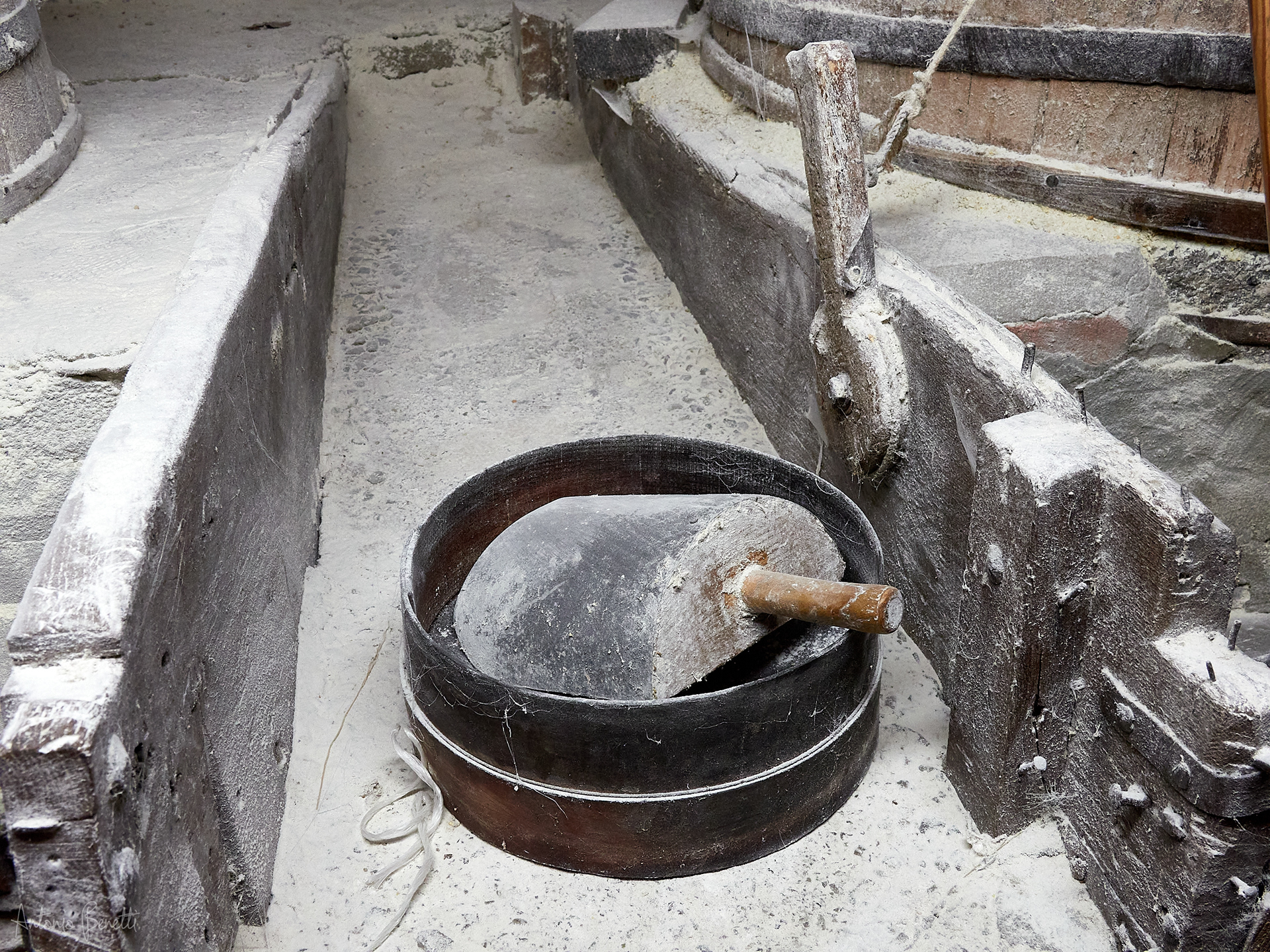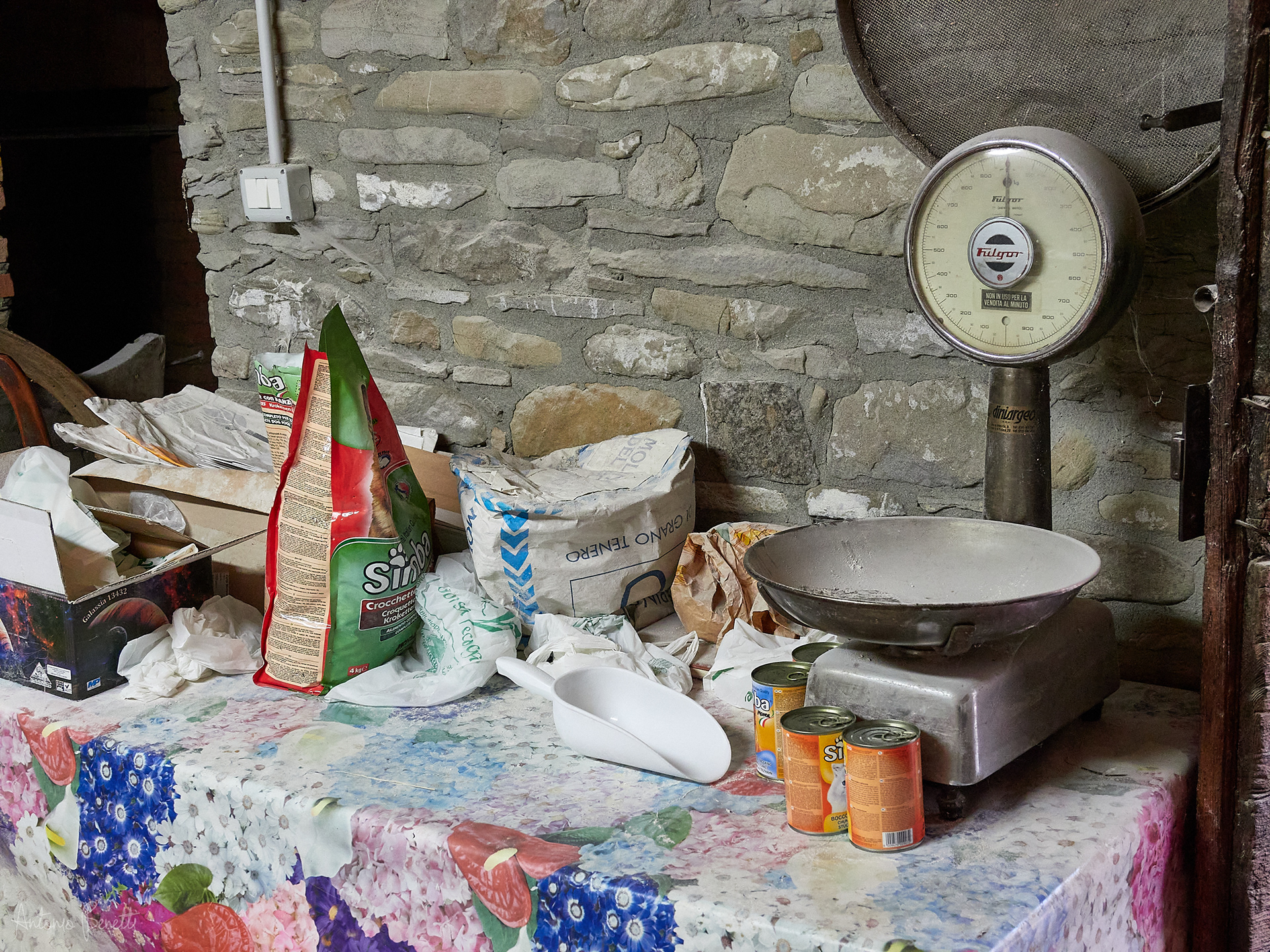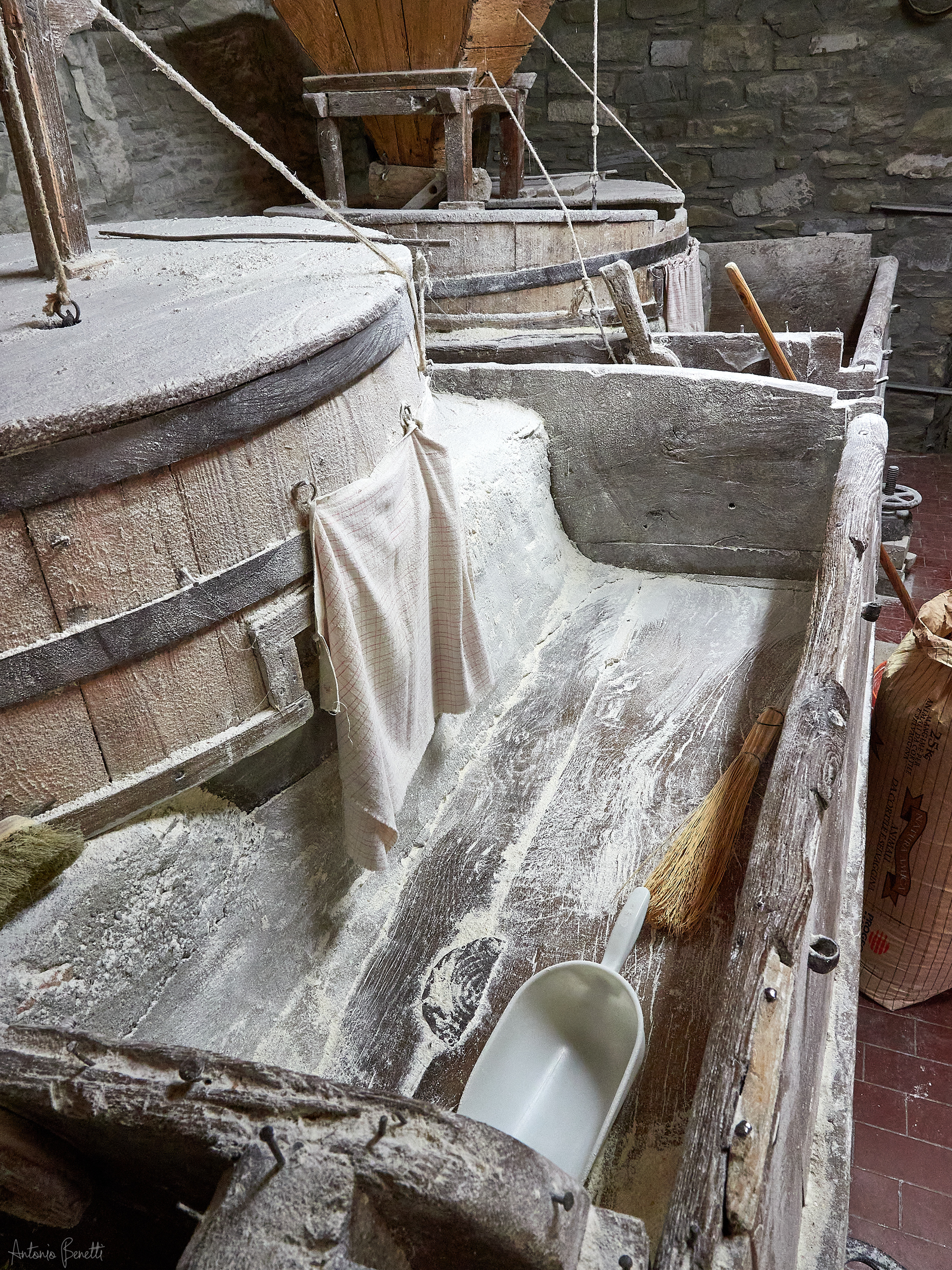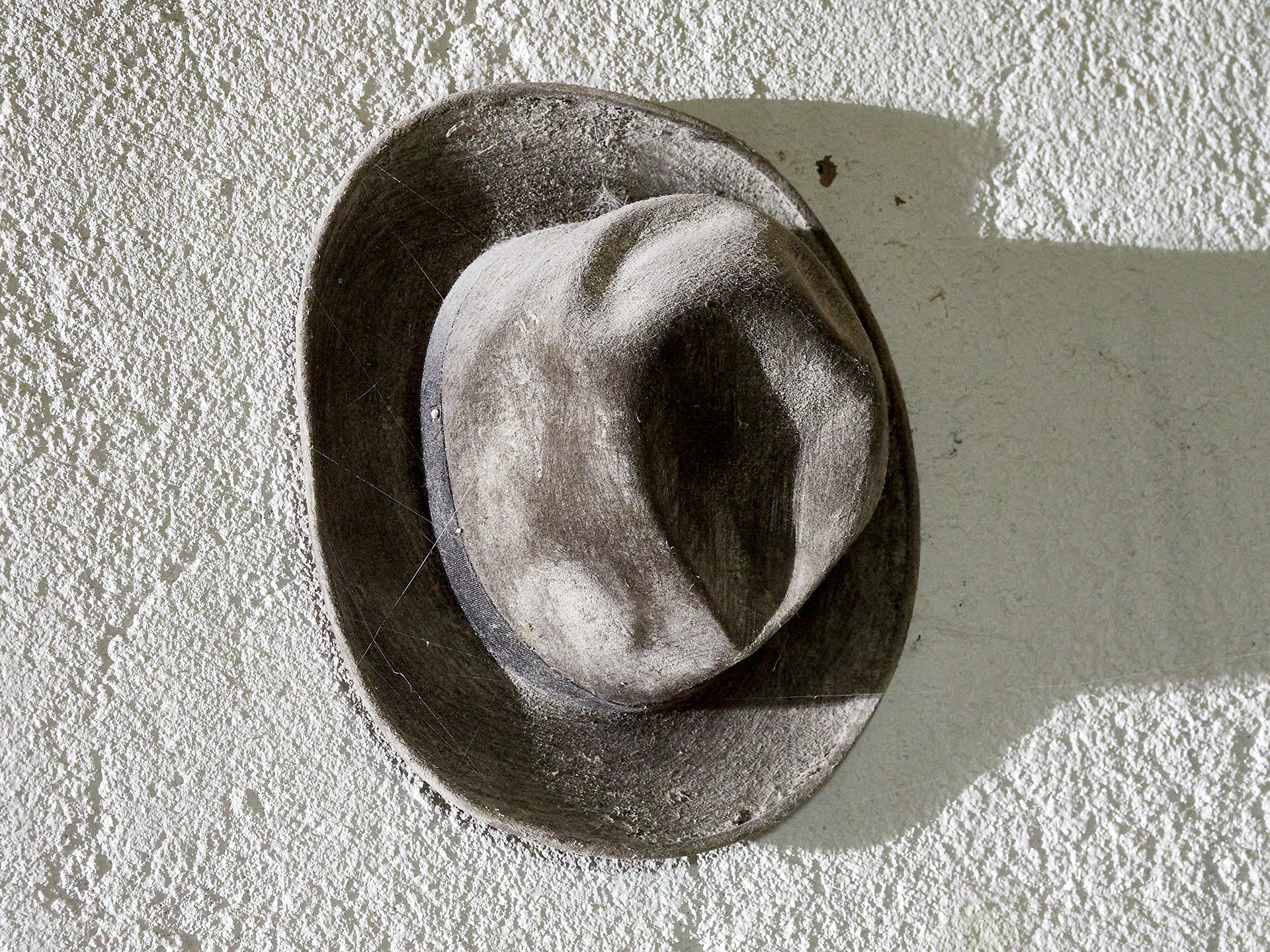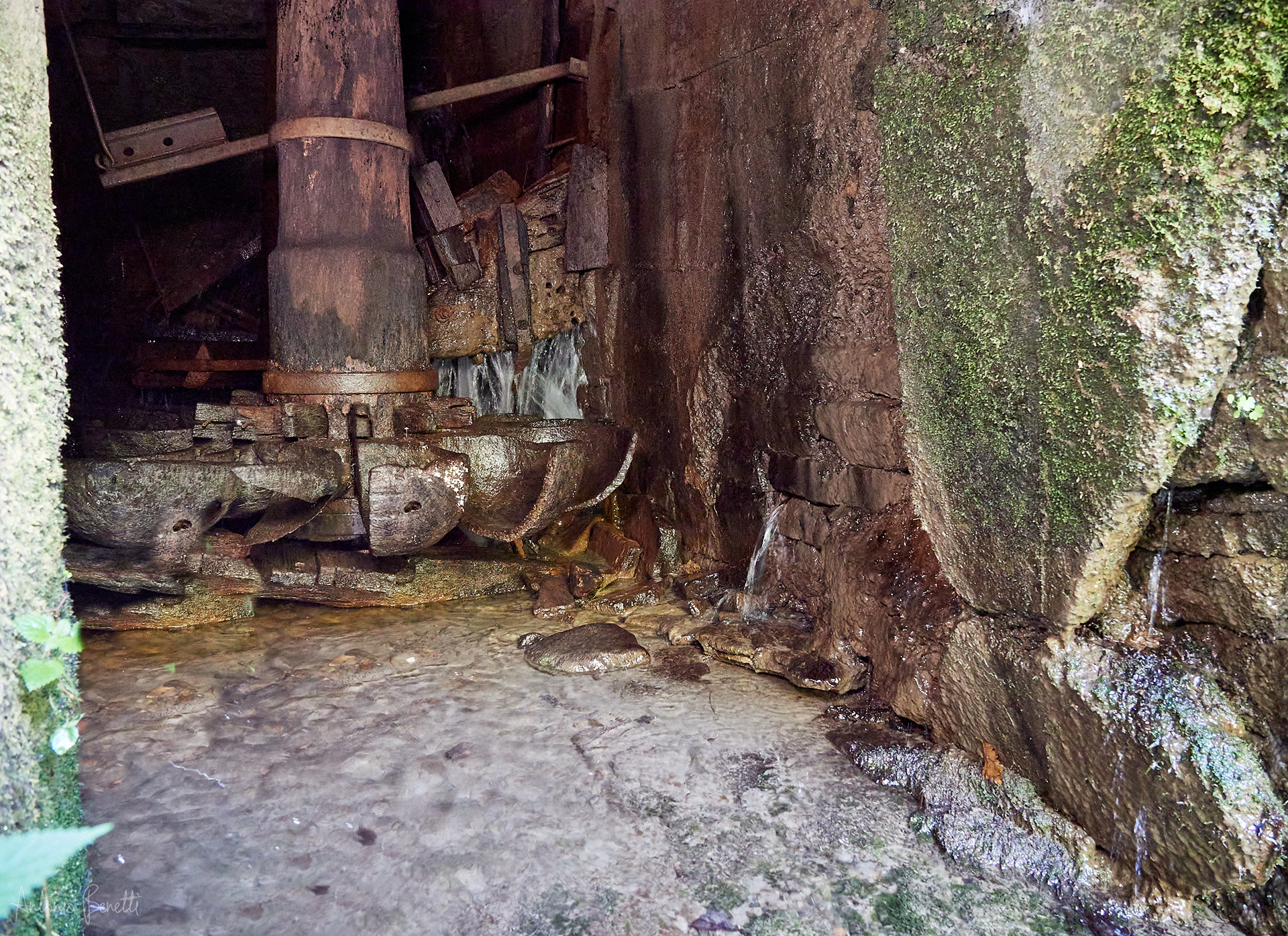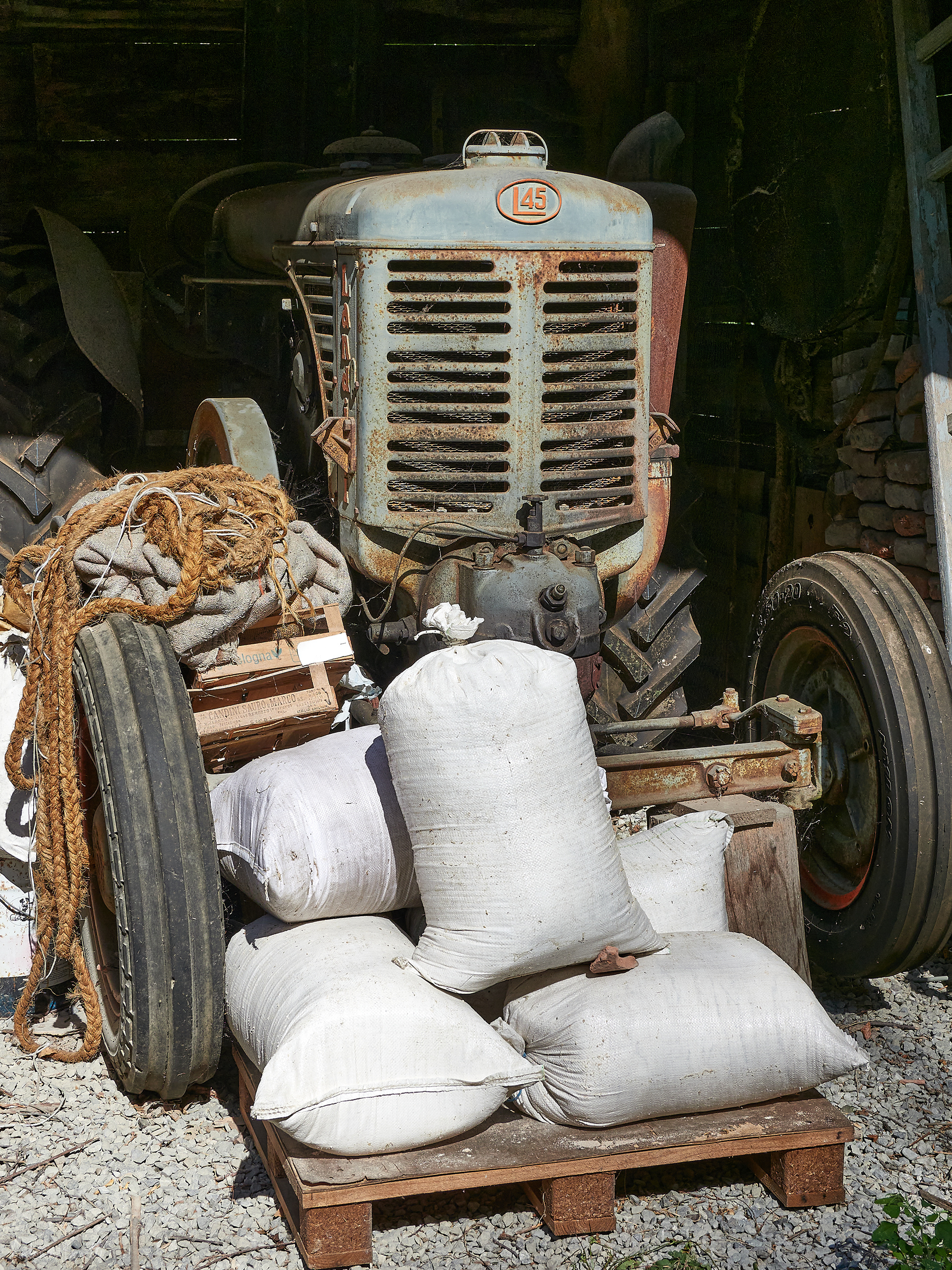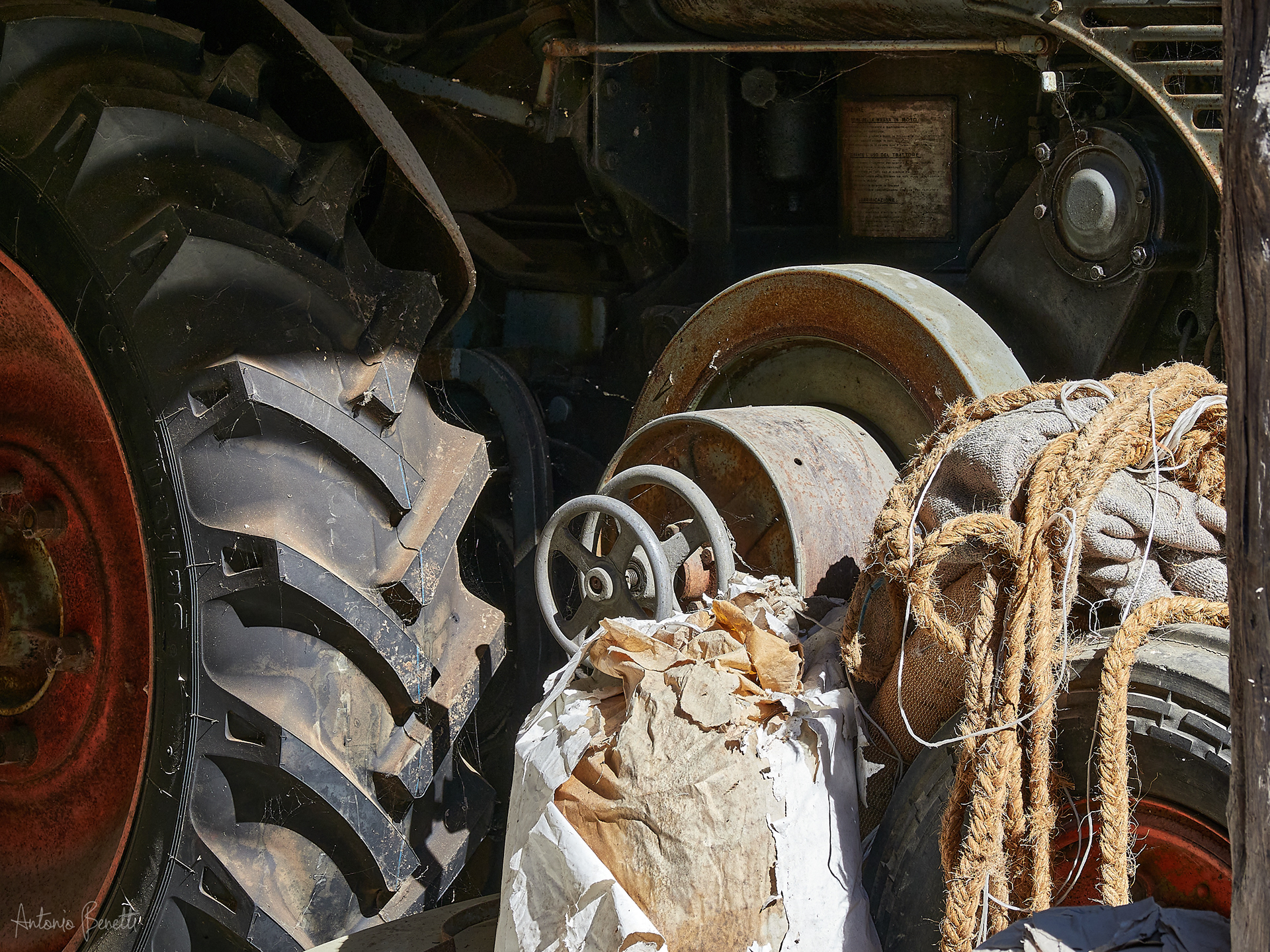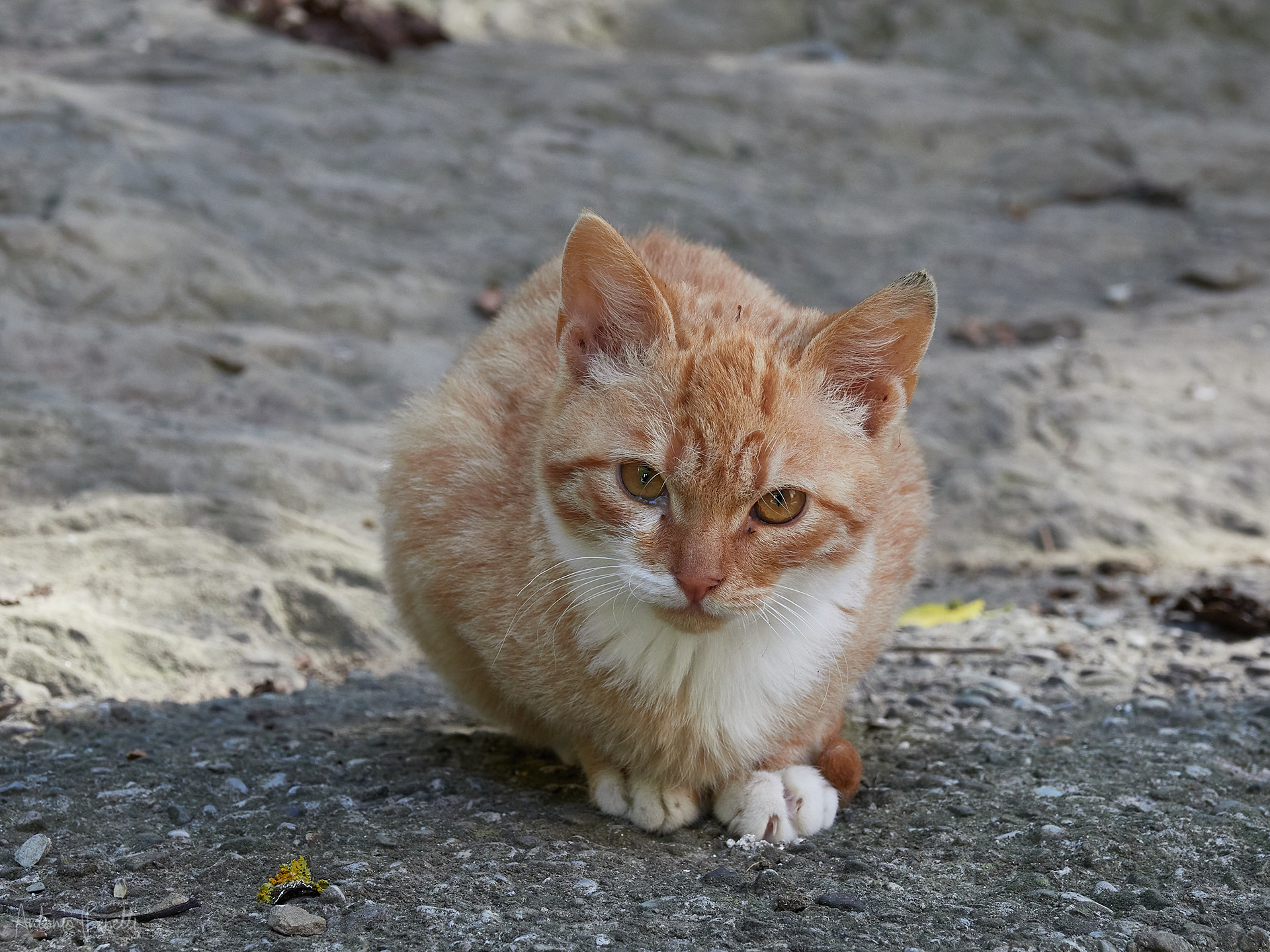Tutto ebbe inizio nel 1822, anno in cui una famiglia contadina di Gombola, piccolo borgo del Comune di Polinago in provincia di Modena, iniziò a costruire un sistema di canalizzazione e chiuse per far arrivare l’acqua dalle Piane di Mocogno e Pavullo fino in paese, permettendole così di accarezzare la gigante ruota di legno che dava forza alle ruote di pietra atte a macinare i cereali della vallata: nasce così il Mulino di Gombola. Questo gioiello storico e architettonico è uno dei pochi mulini in Italia a funzionare ancora interamente ad acqua. Arrivato nel piccolo piazzale incontro Diego Veratti, energico ultra ottantenne, l’ultimo mugnaio di Gombola,. Diego e il mulino vivono quasi in simbiosi da oltre ottanta’anni
Gli antenati macinavano, i nonni e i genitori pure e lui non si è mai tirato indietro, nemmeno quando è rimasto da solo contro l’industrializzazione più assoluta, nemmeno quando ha dovuto dar fondo al conto in banca pur di tenere in piedi il Mulino, nemmeno quando i guadagni non bastavano. Lui, sorta di “Custode delle Memorie”, aveva una sola missione: continuare a dare il pane alla vallata, anche se di farina non gliene avanzava, anche se doveva farlo dopo undici ore da muratore.
Gli antenati macinavano, i nonni e i genitori pure e lui non si è mai tirato indietro, nemmeno quando è rimasto da solo contro l’industrializzazione più assoluta, nemmeno quando ha dovuto dar fondo al conto in banca pur di tenere in piedi il Mulino, nemmeno quando i guadagni non bastavano. Lui, sorta di “Custode delle Memorie”, aveva una sola missione: continuare a dare il pane alla vallata, anche se di farina non gliene avanzava, anche se doveva farlo dopo undici ore da muratore.
Diego si è sempre sacrificato per quel Mulino e il Mulino ha sempre protetto Diego, ma non solo. E’ così che ci racconta che durante l’ultima guerra i nazifascisti invasero completamente la vallata . I nemici avanzavano e distruggevano tutto, sparando e bombardando, Gombola era quasi rasa al suolo ma non il Mulino: lui resisteva, dava rifugio ai Partigiani, permetteva a Diego di continuare a offrire la sua farina, diventava il “Custode delle Memorie” che ancora oggi vivono grazie a lui . Entrambi ricordano molto bene la miseria più assoluta di quegli anni bui, ma non si sono mai arresi.
Un Custode delle Memorie che continua imperterrito a offrire le sue farine alla vallata: dall’integrale naturale alla stagionale di castagne, passando per quella dorata per la polenta.
Resiste, dice, almeno fino a che avrà respiro, poi bisognerà sperare in un’anima forte che continui la tradizione poiché attualmente, dopo di lui, non c’è nessuno.
Oggi la grande ruota di legno non gira più per un problema tecnico, servirebbero soldi per renderla di nuovo funzionante, il comune ha già pronunciato la solita frase: “non ci sono soldi”.....Speriamo che presto possa riprendere ad accarezzare l’acqua come ha fatto per oltre cento anni.....
Un Custode delle Memorie che continua imperterrito a offrire le sue farine alla vallata: dall’integrale naturale alla stagionale di castagne, passando per quella dorata per la polenta.
Resiste, dice, almeno fino a che avrà respiro, poi bisognerà sperare in un’anima forte che continui la tradizione poiché attualmente, dopo di lui, non c’è nessuno.
Oggi la grande ruota di legno non gira più per un problema tecnico, servirebbero soldi per renderla di nuovo funzionante, il comune ha già pronunciato la solita frase: “non ci sono soldi”.....Speriamo che presto possa riprendere ad accarezzare l’acqua come ha fatto per oltre cento anni.....
È stata una bella giornata. Torno a casa con un pizzico di tristezza sapendo benissimo che se nessuno interverrà questi "gioielli del Tempo" saranno destinati a perdersi, facendoci dimenticare un pezzo della nostra storia e delle nostre radici. Ma così non dovrebbe essere .......
Mill of Gombola, where time is stopped
It all began in 1822, the year in which a peasant family from Gombola, a small village of the Municipality of Polinago in the province of Modena, began to build a system of canalization and locks to get water from the Mocogno and Pavullo plains up to country, allowing her to caress the giant wooden wheel that gave strength to stone wheels suitable for grinding the cereals of the valley: this is how the Mill of Gombola was born.
This historical and architectural gem is one of the few mills in Italy still functioning entirely water. Arrived in the small square I meet Diego Veratti, ultra energetic eighty, the last miller of Gombola. Diego and the mill live almost in symbiosis from over eighty years.
The ancestors grinded, the grandparents and the parents too and he never backed down, not even when he was left alone against the most absolute industrialization, not even when he had to fund his bank account to keep the mill up, not even when the earnings weren't enough. He, a sort of "Keeper of Memories", had only one mission: to continue to give bread to the valley, even if there was no flour left over, even if he had to do it after eleven hours as a bricklayer.
Diego has always sacrificed himself for that Mill and the Mill has always protected Diego, but not only. This is how he tells us that during the last war the Nazi-Fascists invaded the valley completely . The enemies advanced and destroyed everything, shooting and bombing, Gombola was almost razed to the ground but not the Mill: he resisted, he gave refuge to the Partisans, it allowed Diego to continue offering his flour, it became the "Keeper of the Memories" that still live thanks to him. They both remember a lot
well the absolute misery of those dark years, but they never gave up.
A Keeper of Memories who continues undeterred to offer his flours to the valley: from natural wholemeal to seasonal chestnuts, passing through the golden one for polenta.
He resists, he says, at least until he has breath, then we must hope for a strong soul that continue the tradition because currently, after him, there is no one.
Today the big wooden wheel no longer turns due to a technical problem, money would be needed
to make it work again, the municipality has already uttered the usual phrase: “not there it's money ”..... We hope that soon he can start stroking the water again as he has done for over a hundred years .....
This historical and architectural gem is one of the few mills in Italy still functioning entirely water. Arrived in the small square I meet Diego Veratti, ultra energetic eighty, the last miller of Gombola. Diego and the mill live almost in symbiosis from over eighty years.
The ancestors grinded, the grandparents and the parents too and he never backed down, not even when he was left alone against the most absolute industrialization, not even when he had to fund his bank account to keep the mill up, not even when the earnings weren't enough. He, a sort of "Keeper of Memories", had only one mission: to continue to give bread to the valley, even if there was no flour left over, even if he had to do it after eleven hours as a bricklayer.
Diego has always sacrificed himself for that Mill and the Mill has always protected Diego, but not only. This is how he tells us that during the last war the Nazi-Fascists invaded the valley completely . The enemies advanced and destroyed everything, shooting and bombing, Gombola was almost razed to the ground but not the Mill: he resisted, he gave refuge to the Partisans, it allowed Diego to continue offering his flour, it became the "Keeper of the Memories" that still live thanks to him. They both remember a lot
well the absolute misery of those dark years, but they never gave up.
A Keeper of Memories who continues undeterred to offer his flours to the valley: from natural wholemeal to seasonal chestnuts, passing through the golden one for polenta.
He resists, he says, at least until he has breath, then we must hope for a strong soul that continue the tradition because currently, after him, there is no one.
Today the big wooden wheel no longer turns due to a technical problem, money would be needed
to make it work again, the municipality has already uttered the usual phrase: “not there it's money ”..... We hope that soon he can start stroking the water again as he has done for over a hundred years .....
It was a nice day. I return home with a hint of sadness knowing full well that if no one intervenes these "jewels of the Time" will be destined to be lost, making us forget a piece of our history and our roots. But that shouldn't be.......

